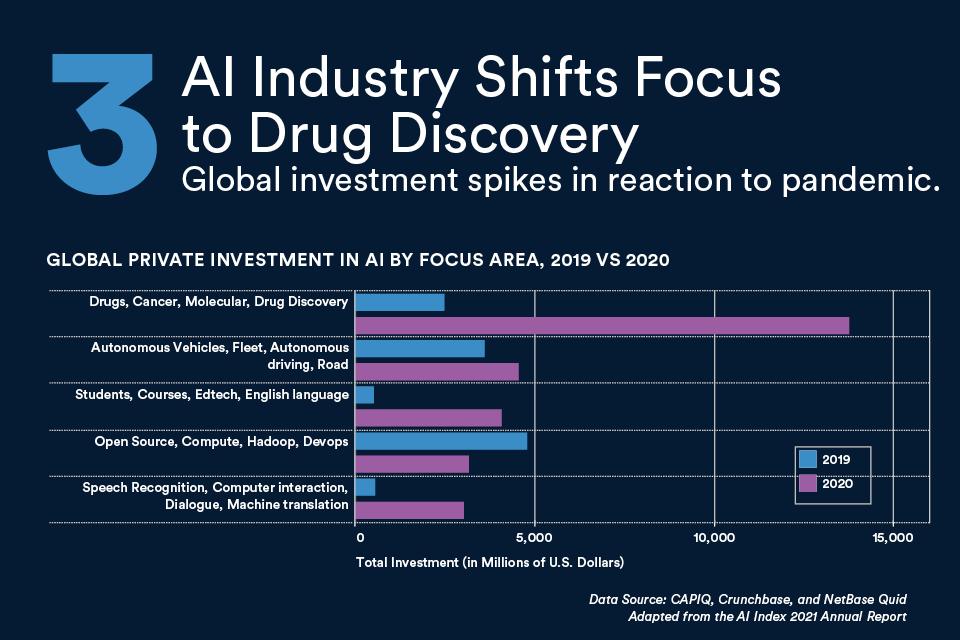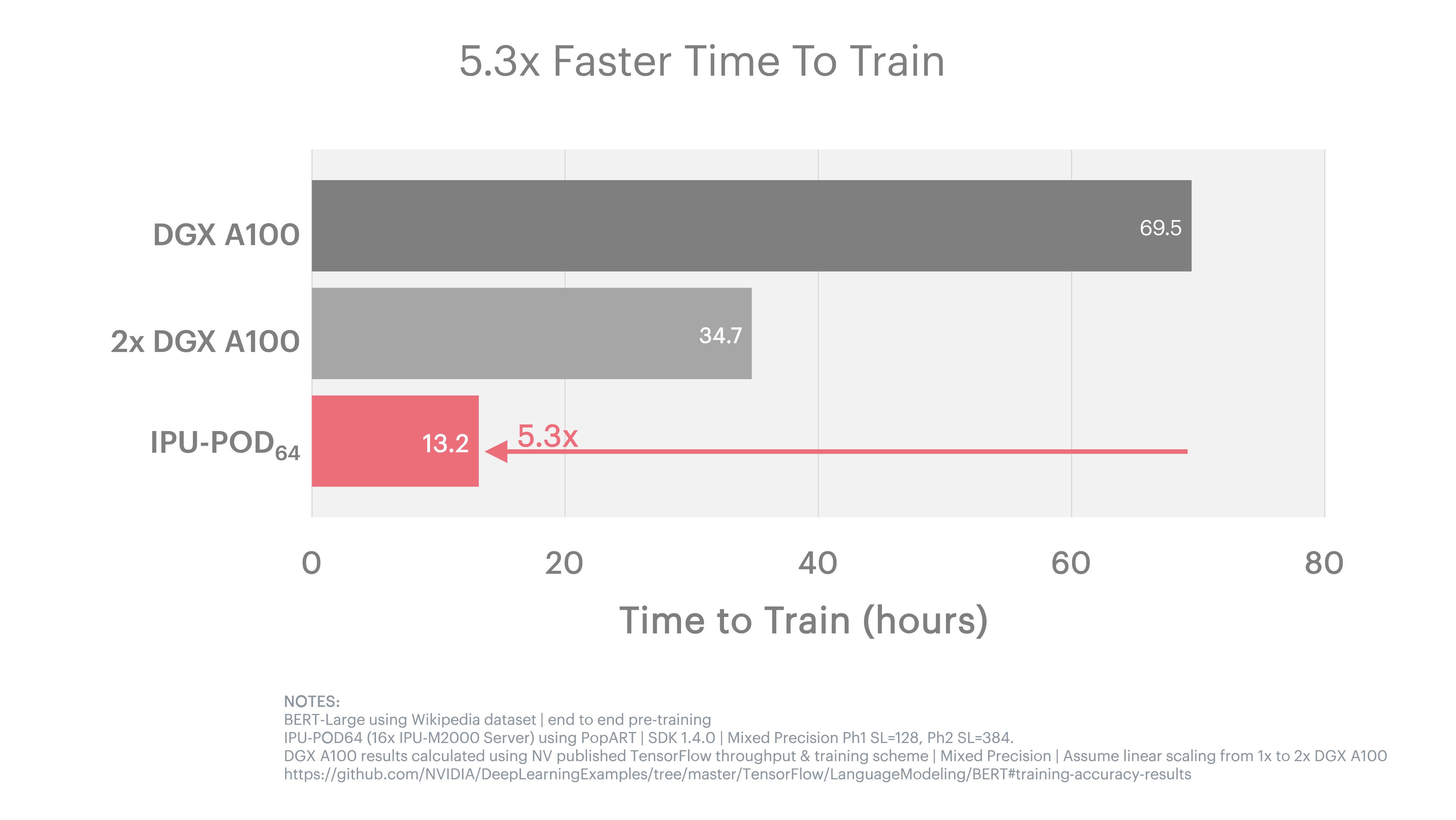Earlier this month, Stanford HAI released its 2021 AI Index report (its 4th Edition). The index is an independent program developed by an interdisciplinary team at HAI in partnership with academia, industry, and government. It takes an in-depth look at AI's impact and progress each year. In it, something surprising happened in regards to global private investment in AI in 2020. The AI Industry took a swing in an interesting direction.
The report details the effect that COVID-19 has had on AI development from varying perspectives, including how AI helps with COVID-related drug discovery and the effect of the pandemic on hiring and private investment. In fact, that's the truly interesting part. Where autonomous systems seemed to have been growing dramatically year over year, in 2020 that changed once COVID became an issue. Almost immediately, global investment spiked in the area of drug discovery. 
Slide Credit: State of AI in 10 Charts - March 3, 2021 - Shana Lynch
The above chart from The State of AI in 10 Charts shows that in 2020 drugs, cancer, molecular, and drug discovery topped the list, with more than $13.8 billion in private AI investment, 4.5x higher than 2019.
These AI technologies are stretching the boundaries of what's possibly in drug discovery and biology today. AI experts worldwide agree that we'll see more significant technological breakthroughs over the next three to five years that will have huge impacts in these areas. It's one of the reasons why Cirrascale takes pride in working closely with companies like Graphcore whose Intelligence Processing Unit technology is helping to advance the work being done in medical research as a whole. This new hardware architecture easily handles the massive parallelism, sparse data structures, low-precision compute, model parameter re-use and static graph structures that dominate next generation AI models like those used in drug discovery.
In fact, one of the first customers to use Graphcloud, our Mk2 IPU cloud service developed in collaboration with Graphcore, was UK-based Healx whose artificial intelligence platform for drug discovery is identifying new treatments for rare diseases. The company was named ‘Best Use of AI in Health and Medicine’ at the 2019 AI Awards. With companies like Healx, Graphcore is investigating additional machine intelligence approaches that could drive huge advances in AI-powered drug discovery.
BERT Large (Bidirectional Encoder Representations from Transformers) is one of the most well known NLP models in use today. The Graphcore IPU accelerates both training and inference on BERT-Large, delivering 5.3x faster time to train results with significantly higher throughput at extremely low latency for inference over today's latest GPUs.

These NLP benchmarks also generalize very naturally to genomics. The same NLP modeling techniques can be used for genome sequencing and to design new proteins more quickly and easily, which could reduce testing time in the lab.
For additional reference, Mark Saroufim from Graphcore does a fantastic job in his blog post, "A New Architecture for AI-Powered Drug Discovery" specifically covering how Graphcore's IPU hardware for next generation AI models can provide unprecedented accelerations for drug discovery applications.
What do you think about 2020's industry shift to drug discovery? Where do you think private investment in AI will grow next? Are you currently using the latest technology to tackle your AI models? Drop your comments below so we can discuss.


